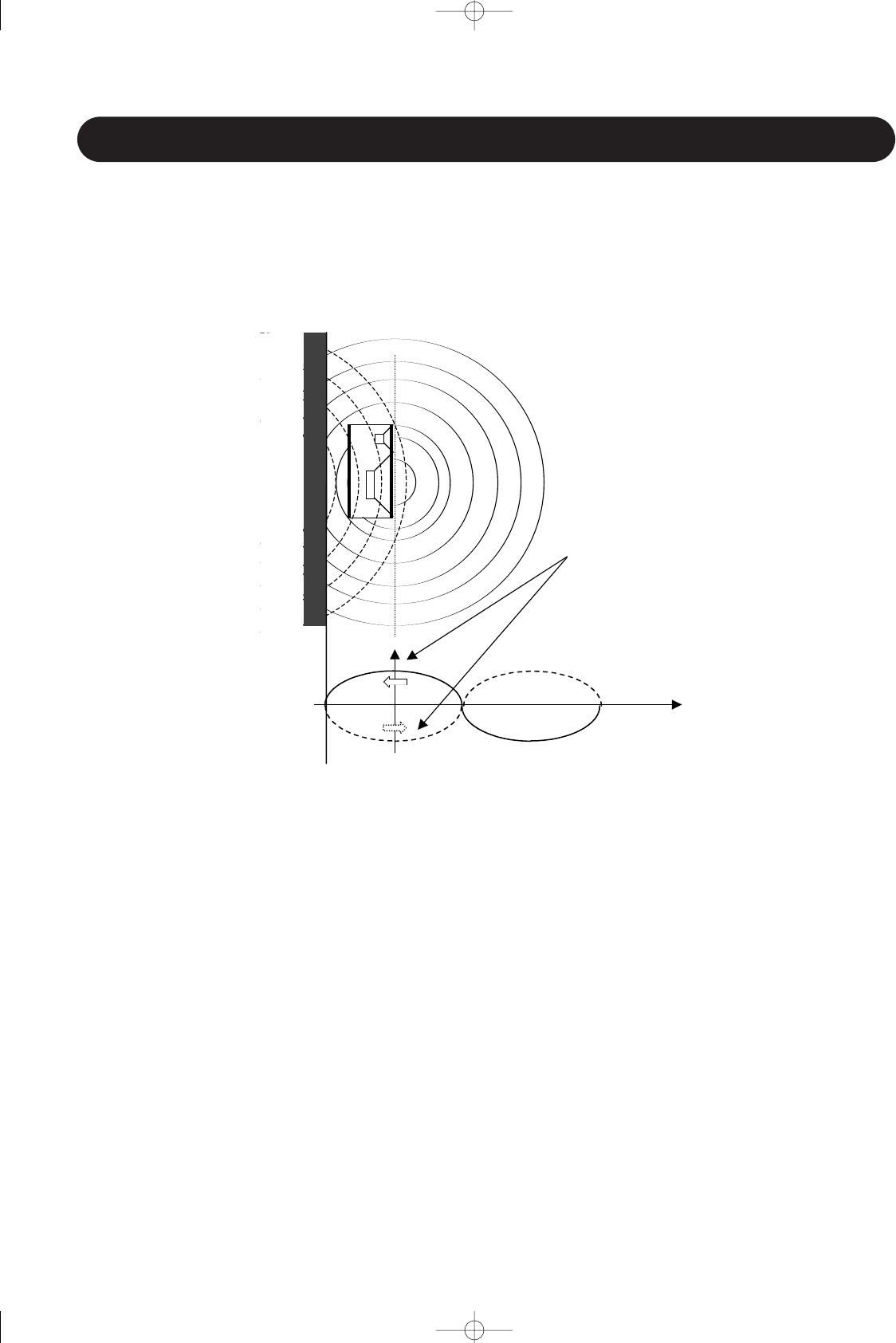
39
ACOUSTICS - BACKGROUND INFO
Rear wall cancellation
When the monitor is set up at some distance in front of a wall, reflections from the wall may occur and influence the
perceived frequency response. This could result in comb filtering if all frequencies produced by the monitor were radiated
in all directions. But the monitors are typically only omni-directional at low frequencies.
The result of the reflection is a single or few dips in the frequency response perceived in front of the monitor.
This frequency is
cancelled because of the
oppositely phased
reflection
The frequency response may look like this: one cancellation at the frequency that has a wave length of four times the
distance to the rear wall.
The dip - or cancellation frequency - is dependent on the
distance to the wall. If the distance is 1 m, the first dip
frequency will occur at a frequency with a wavelength of
4 m.
l = c / f
where
l = wavelength [m] (or ft.)
c = speed of sound [m/sec] (or ft./sec.)
f = frequency [Hz]
Hence
4 = 344 / f
f = 86 Hz
A closer position will result in a cancellation at a higher
frequency. This is then limited by the frequency where the
monitor becomes directional and does rot radiate sound to
the rear.
A farther position will result in cancellation at a lower
frequency. This is limited by the distance being so long,
that the reflected sound is attenuated due to the long extra
path travel.
Air_US_rev_111.qxd 16-12-2004 14:18 Page 39


















